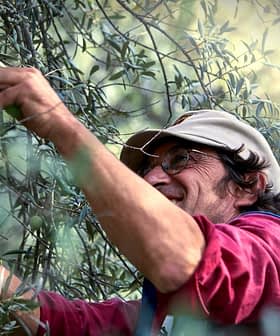Billion-Dollar Pipeline Threatens Olive Grove in Southern Italy
Local and national authorities are going head to head over an olive grove standing in the way of a 545-mile pipeline project.
A UNESCO-protected olive grove of located in Puglia, Italy is standing in the way of proposed Trans-Adriatic Pipeline (TAP) project valued at over $45 million. This pipeline would transport gas from central Asia to the millions of homes in various regions in the European Union in order to wean Europe off its dependence on Russian energy supplies.
The tiny olive grove is known as the “Piana degli Ulivi” (Plain of Olive Trees) and consists of less than 250 trees, some of which are almost 500 years old and are considered natural archaeological monuments. Unlike many other UNESCO protected landmarks, the Piana degli Ulivi is unique in that it has remained productive throughout its existence and is still productive today.
The grove is located just outside the town of Melendugno and local Authorities in Puglia and Melendugno are threatening to go to the Italian Constitutional Court if the pipeline goes ahead. They allege that they were not consulted by the Roman government before the project began and that constitutional law dictates that international pipeline projects such as the TAP legally require regional consent.
Other groups who could be considered as opposing the pipeline project include farmers and oil producers in the region as well as those involved in the local agricultural and tourism businesses (the TAP would run through the popular San Foca beachfront on the Salento coast).
While the proposed pipeline only intersects through the Piana degli Ulivi in the last five miles of its total 545-mile length, it would involve the primary olive grove being destroyed and the 10,000 other trees being moved and replanted — an agreement brokered between the developers and Roman authorities directly.
Locals believe that the trees may not survive the move and risk contracting Xylella fastidiosa. Earlier this year, the European Food Safety Authority identified this strain of bacterium as one particularly lethal for olive trees and it has already been responsible for the demise of over a million trees in the region. In the past, eradication plans to treat the disease involve destroying all trees with 100 meters of any plants affected with the disease.
On December 4, a referendum was put forward by Italian Prime Minister Matteo Renzi to reform Italian constitutional law, directly pitched local and national authorities against each other in a battle for power. The referendum was defeated by a wide margin, leaving Puglia and Melendugno still within their rights to prevent the TAP from advancing any further.
Despite this, the consortium behind the pipeline (including Belgian, Spanish and Swiss corporations) are confident that the pipeline will go forward as planned, with shortened timeline the only consequence they intend to be dealing with.
However, if the project does not proceed by April next year, it will need to wait until November 2017. Local authorities dictated that this would be the next available window when the 10,000 olive trees will enter a slow growth phase, allowing them to be moved safely.








